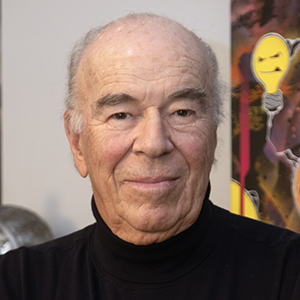When should life sentences be overturned? Judge shares how he decides

Judge Frederic Block was appointed to the U.S. District Court for the Eastern District of New York in 1994. (Photo courtesy of Judge Frederic Block)
A federal judge's new book is giving readers a rare inside glimpse at how a judge determines which prisoners deserve to have their sentences overturned.
In his memoir, Disrobed: An Inside Look at the Life and Work of a Federal Trial Judge, Judge Frederic Block introduced readers to his colorful life and career. In Crimes and Punishments: Entering the Mind of a Sentencing Judge, he explained the rationale that judges use when deciding sentences and the human toll that it can take. And now, in A Second Chance: A Federal Judge Decides Who Deserves It, he’s shining a light on how judges consider resentencing and compassionate release.
Without the passage of a key federal law in 2018, A Second Chance would not have been written. A bipartisan piece of legislation signed by President-elect Donald Trump during his first term and supported by the ABA, the First Step Act was one of the biggest criminal justice reforms in the past decade. Among its sentencing reforms, it allows federal judges to reconsider sentences given out during tough-on-crime crackdowns and for prisoners to petition for compassionate release.

Block, who is a senior judge on the U.S. District Court for the Eastern District of New York, soon found himself asked to reconsider sentences under the First Step Act. In the book, he outlines the crimes and rehabilitations (or lack thereof) of six federal prisoners. From a former police officer who assaulted an innocent Haitian immigrant to a trio of mobsters, Block selected an array that represents the types of cases that he’s being asked to consider. Later in the book, he reveals the fate of each—whether life sentences were overturned or unrepentant prisoners were returned to their cells.
In this episode of The Modern Law Library podcast, Block tells the ABA Journal’s Lee Rawles how his views on sentencing have changed since he ascended to the bench in the 1990s.
In a case that made the news after A Second Chance went to press, Block overturned a sentence that he gave out 27 years ago, during his second year on the bench. Block had imposed a quintuple life sentence on Walter Johnson after the man was convicted of robbery, cocaine possession and witness tampering. At age 61, Johnson has now been released from prison, and Block discusses that decision in the episode.
Block sees a moral imperative for all strata of the justice system to work together to address mass incarceration. In addition to calling on judges to be open-minded when considering resentencing offenders, he encourages criminal defense attorneys to go through their lists of former clients to see whether any would be eligible for relief under the First Step Act.
Most importantly, Block is calling upon citizens to lobby for sentencing reforms like the First Step Act on the state level because the legislation only applies to federal prisoners. He points out that only about 200,000 of the approximately 2 million incarcerated Americans are federal prisoners; the vast majority are overseen by state courts.
Block also discusses the public response to President Joe Biden’s recent clemency decisions and how collateral consequences have influenced his initial sentencing decisions.
See also:
Federal judge pens memoir about his time on the bench and his high-profile cases in ‘Disrobed’
What goes on in the mind of a sentencing judge?
The status of the First Step Act one year later
In unusual lineup, SCOTUS rules for pro se prisoner who sought lower sentence under First Step Act
In This Podcast:

Judge Frederic Block
Judge Frederic Block is a judge for the U.S. District Court for the Eastern District of New York. He has been at the forefront of releasing prisoners and has received praise and grief in the media. Block is the author of several books, including his memoir, Disrobed: An Inside Look at the Life and Work of a Federal Trial Judge, and the reality-fiction novel Race to Judgment, the basis for an incipient TV series. His latest book is A Second Chance: A Federal Judge Decides Who Deserves It (The New Press). He lives in New York City.


